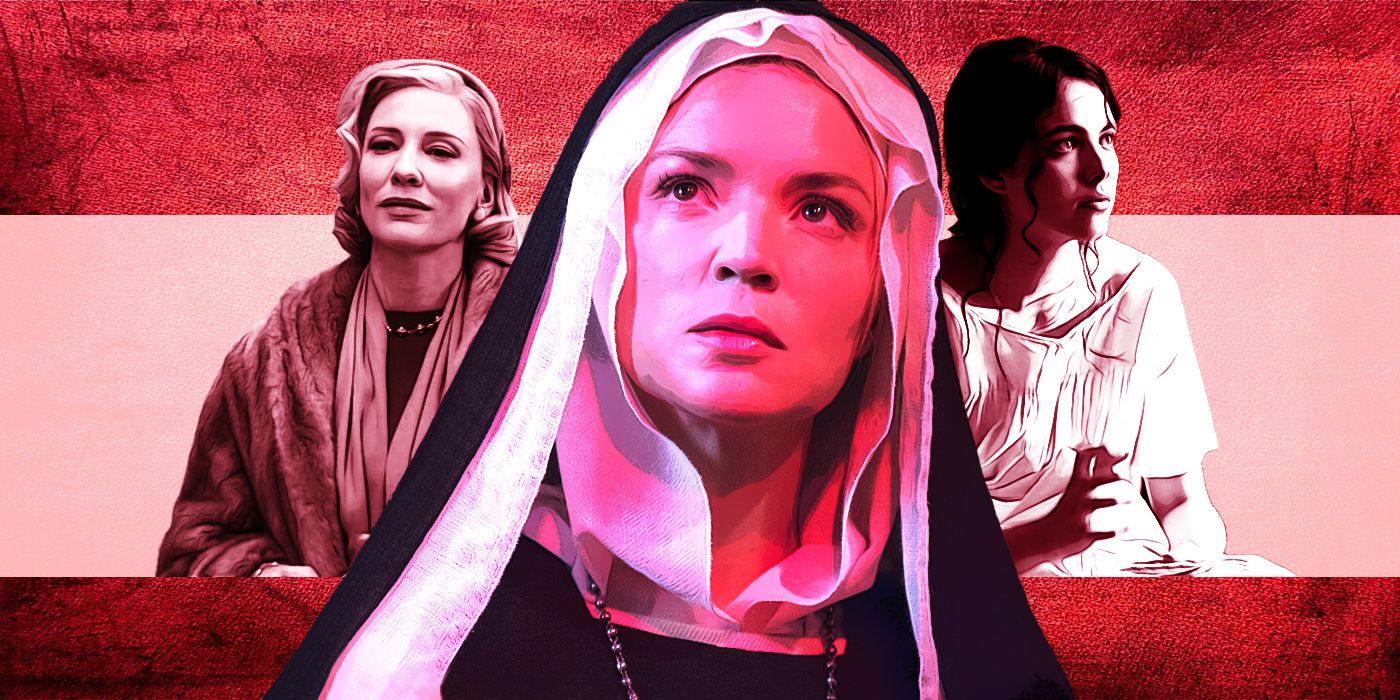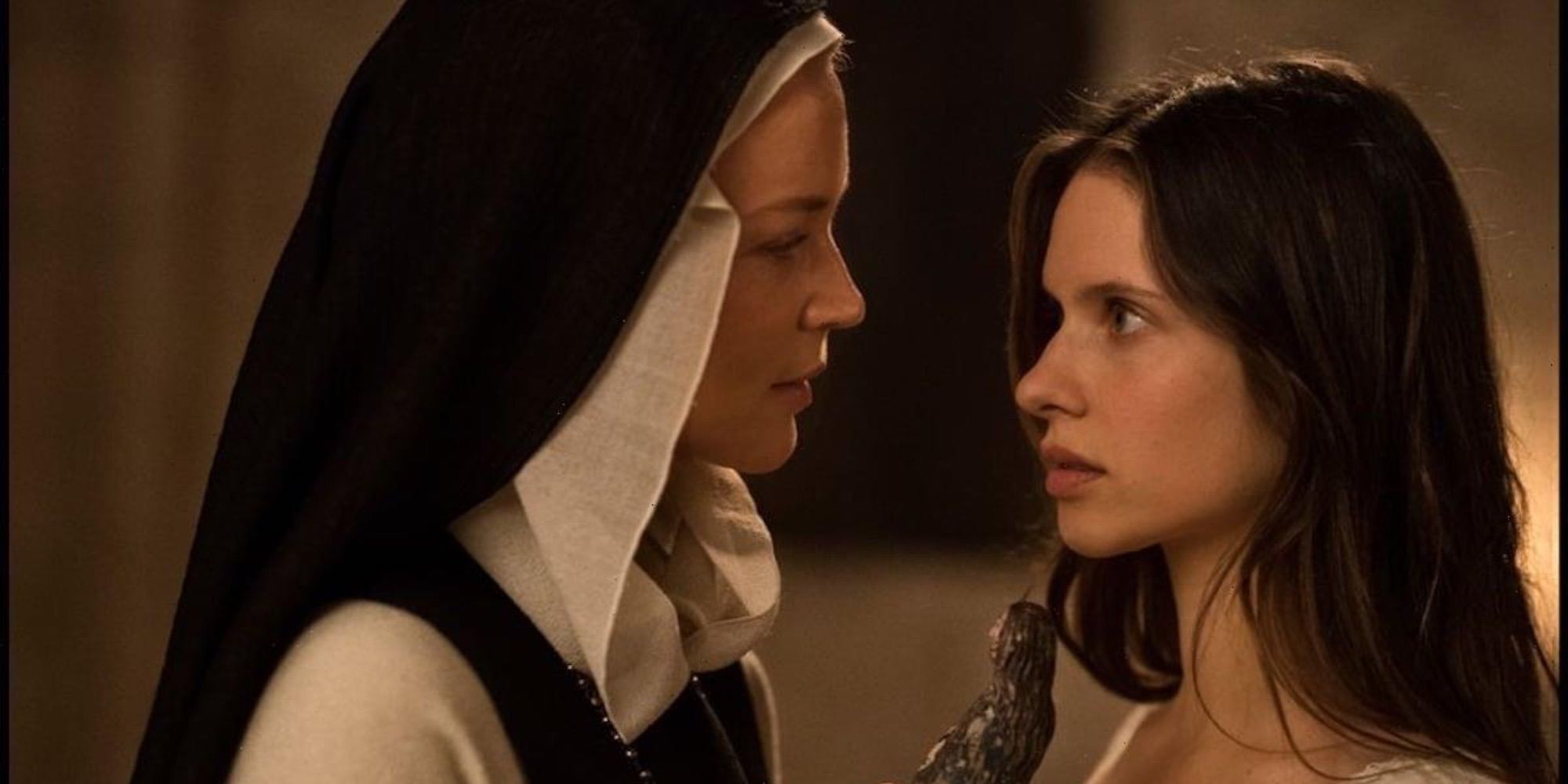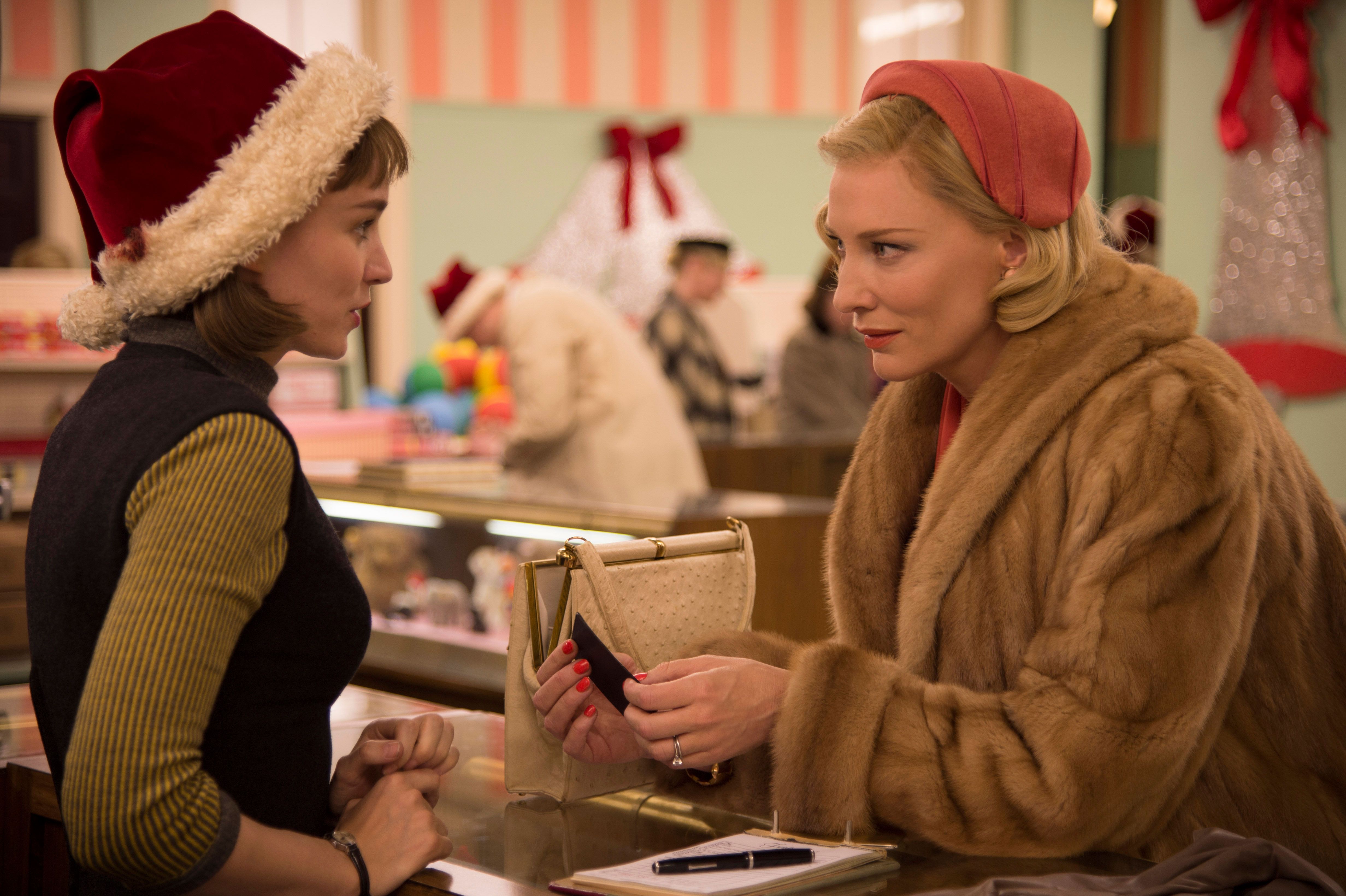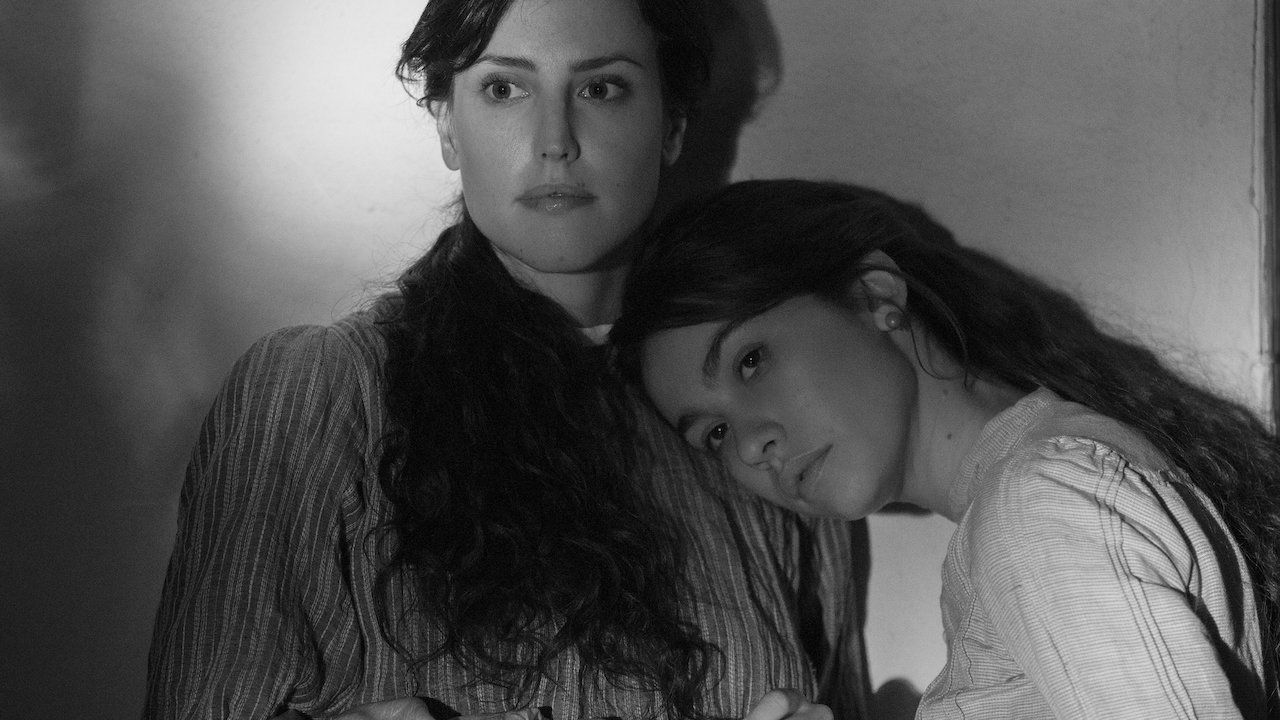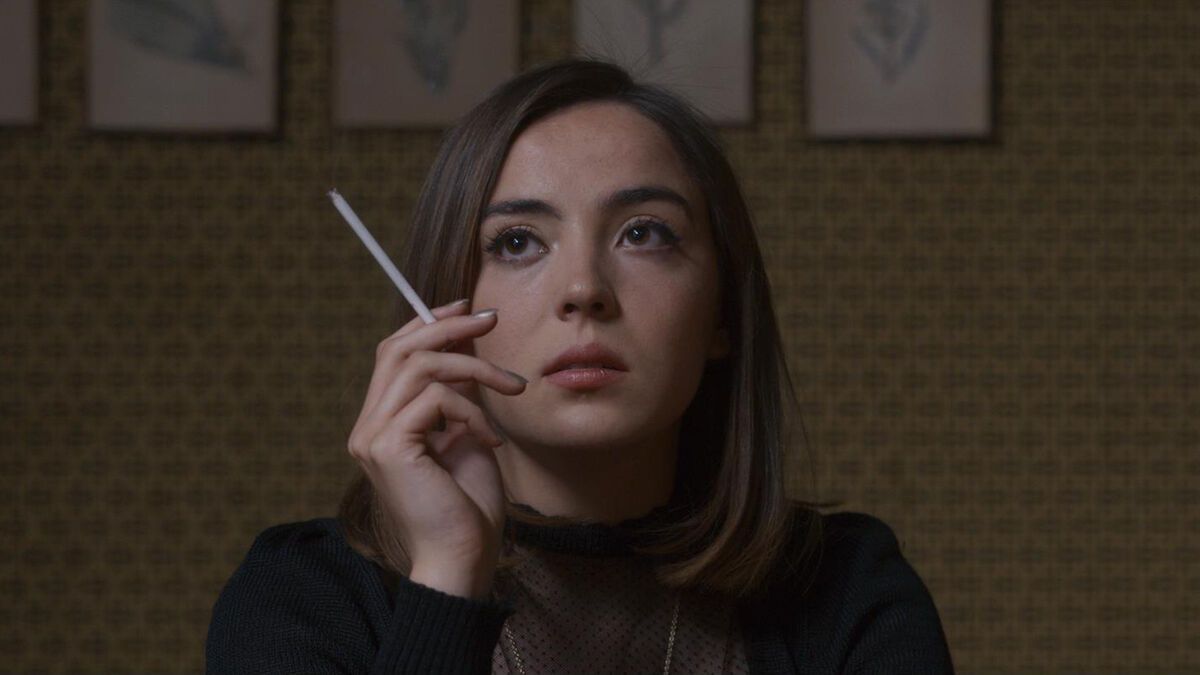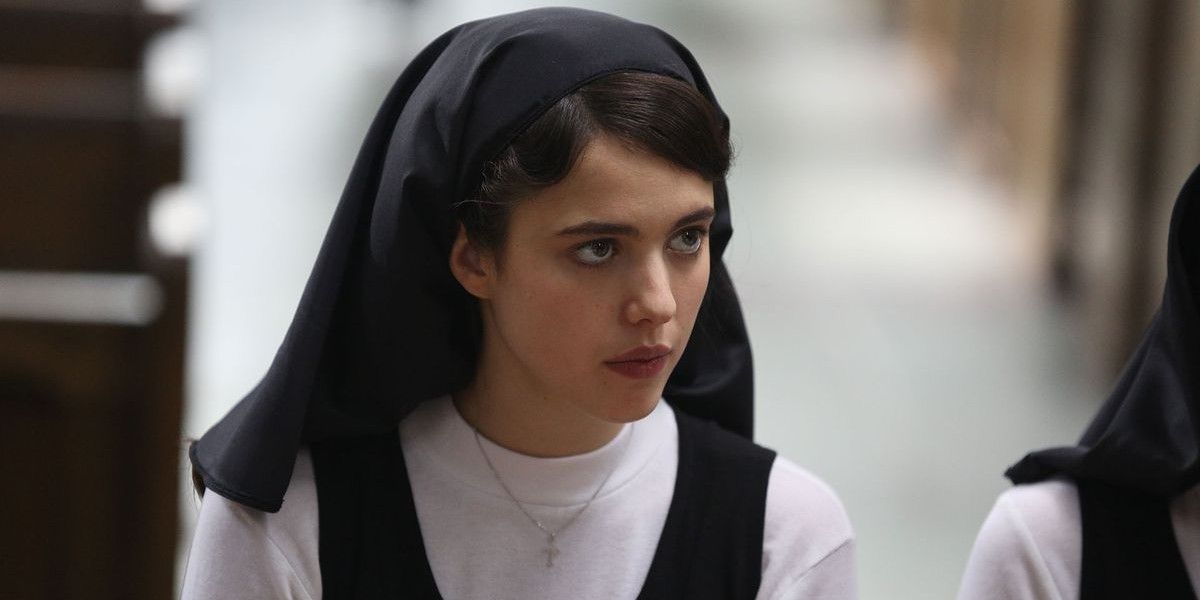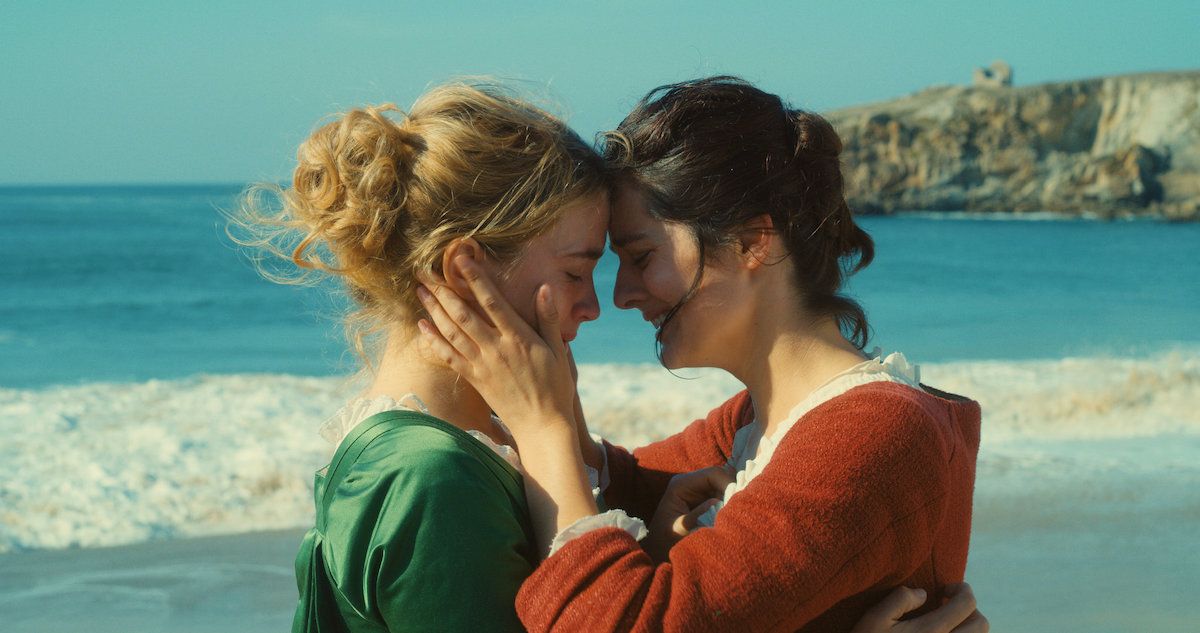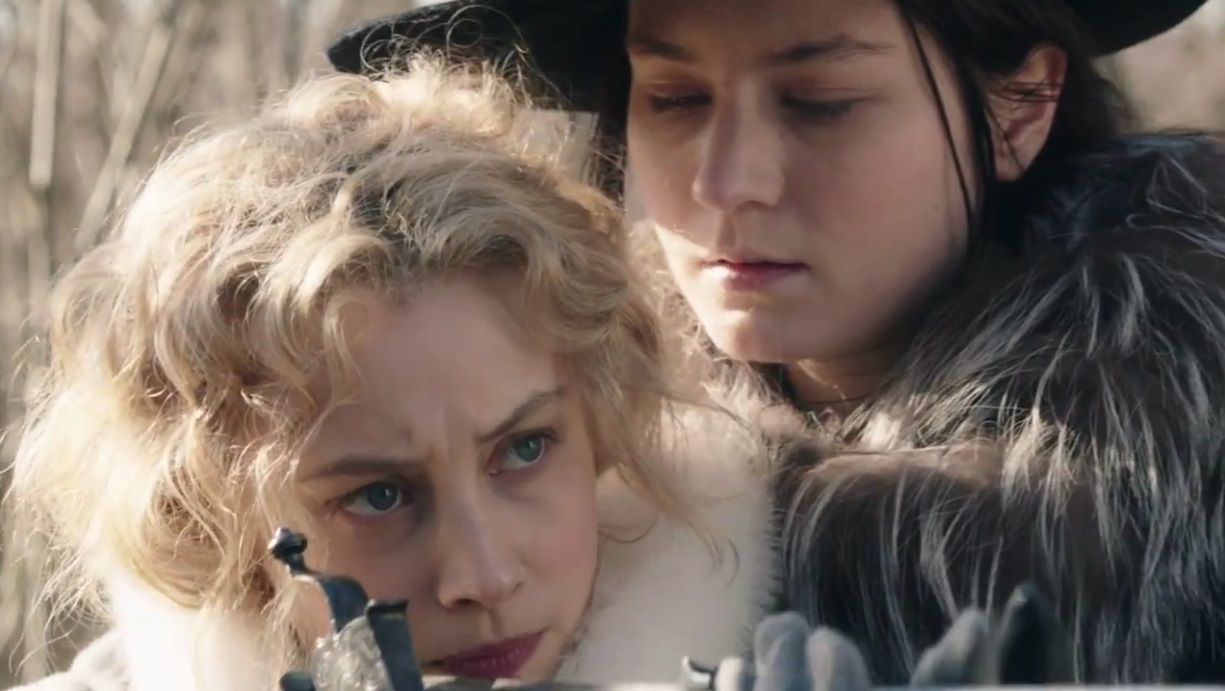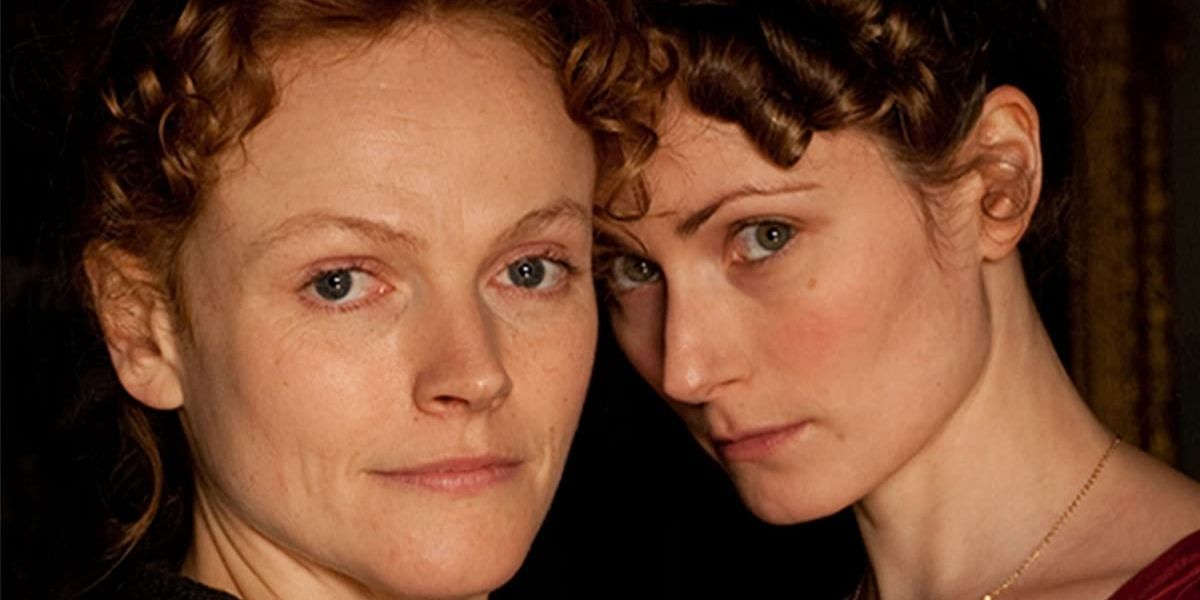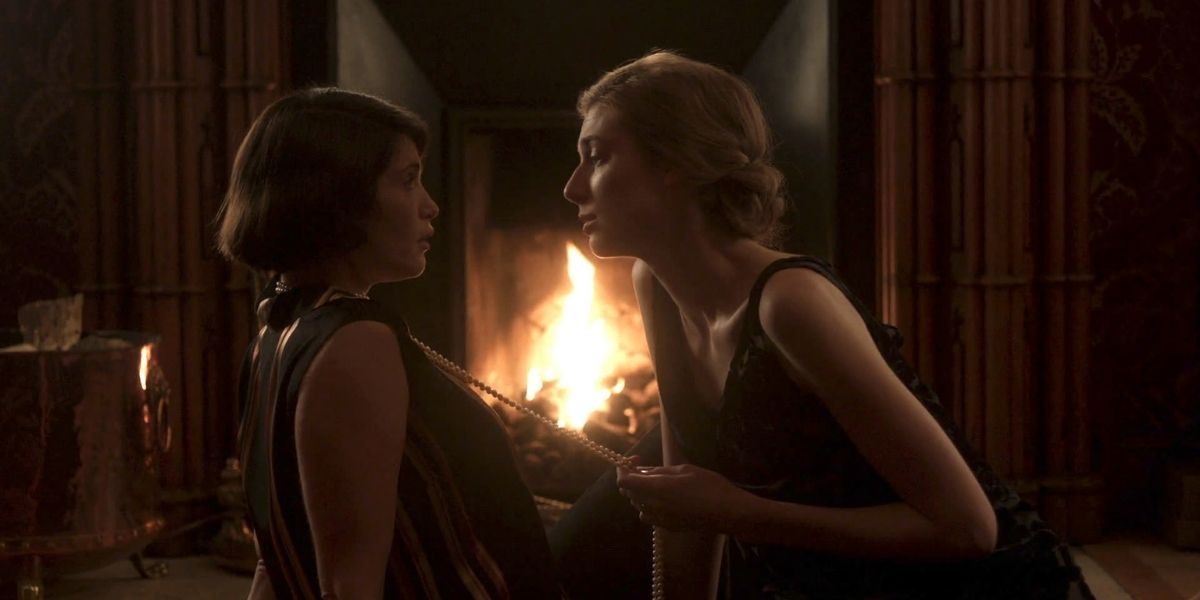First shown at Cannes Film Festival in 2021 where it was nominated for a Palme d’Or, Benedetta is a French biographical drama based on the true story of 17th-century nun Benedetta Carlini (played by Virginie Efira), who claimed to have religious visions and was involved in a forbidden lesbian affair with a fellow nun during her lifetime.
Benedetta is a tense and psychological film, with just a touch of the violence and profanity that director Paul Verhoeven is known for. The story weaves together themes of religion, physical form and sexuality, gender norms, corruption, and provocation all into one captivating film. If you enjoyed the film and are looking for movies similar to Benedetta, check out the following eight films for more female-led historical dramas.
Carol (2015)
Set in New York City in the early 50s, Carol tells the story of a love affair between young aspiring photographer Therese (Rooney Mara) and older high-society soon-to-be divorcée Carol (Cate Blanchett) after they meet in a department store as shop assistant and shopper respectively. The screenplay by Phyllis Nagy is based on the 1952 semi-autobiographical novel The Price of Salt by Patricia Highsmith. Carol premiered at the Cannes Film Festival in 2015 to a standing ovation, received many nominations during awards season, and is often recognized as one of the best LGBTQIA+ films of all time. There’s no wonder why. It’s beautifully shot (truly making the most of sharp angles and desirous glances), wonderfully acted by Blanchett and Mara, and is incredibly nuanced in exploring the pair’s complex relationship.
Elisa and Marcela (2019)
Elisa and Marcela is a Spanish language film depicting the true story of Elisa and Marcela, the first two women to have a same-sex marriage in Spain, all the way back in 1901. The film follows their relationship from their first meeting at school, through the ups and downs of family and societal pressure, gossip, and separation, to their devising of a plan for Elisa to return as her deceased cousin Mario to successfully marry Marcela. Directed by Isabel Coixet, starring Natalia de Molina as Elisa and Greta Fernández as Marcela, and shot in black and white, it brings to life a true Romeo and Juliet love story tainted by the societal, political, and religious context of the time.
Madame Claude (2021)
Directed and written by Sylvie Verheyde, Madame Claude is the most recent film adaptation of the story of French brothel owner Fernande Grudet, aka Madame Claude. Starring Karole Rocher as Madame Claude, this modern adaptation is a Netflix-commissioned film that covers all the salient points of the madame’s interesting life in the roaring 60s as a hard-nosed businesswoman and government informant. It also looks at her relationship with new recruit and soon-to-be accomplice Sidonie (Garance Marillier), and how a combination of events leads to the eventual downfall of their business empire. The concept of exclusive brothels visited by the rich and powerful - and the subsequent power and responsibility this bestows on their owners - is a tale as old as time, but in this rendition, it’s accompanied by great 60s fashion and on-point eyeliner so it’s even easier to watch.
Novitiate (2017)
Set in the early 60s in the American south, Novitiate follows the story of a young woman in training to become a nun. Cathleen Harris (Margaret Qualley) joins the Convent of the Beloved Rose after she feels she has been called to join the church and begin her training as a nun, commencing as a postulant and moving on to become a novice. The convent is led by Reverend Mother Marie Saint Clare (Melissa Leo) whose life revolves around her role as the Mother Abbess at the convent and her identity formed by a strong faith and belief in traditionalist religious practice. The film explores Cathleen’s conflict within these strict constraints about her ideas of faith, the Catholic institution, and her sexuality, set against the Reverend Mother’s own conflict with the modernizing Catholic Church, her relationship with God, and ultimately, her identity.
Portrait of a Lady on Fire (2019)
Written and directed by Céline Sciamma, Portrait of a Lady on Fire is a French-language historical drama set in the late 18th century in Brittany. It follows the love story of an aristocratic woman Héloïse (Adèle Haenel) and female painter Marianne (Noémie Merlant). Marianne is initially commissioned by Héloïse’s mother to paint Héloïse’s portrait in secret after spending time with her on walks, with the completed portrait to be sent to a potential Milanese suitor. However, during this process Marianne and Héloïse find themselves drawing closer to each other and subsequently embark on an intense physical and emotional affair. Filled with longing looks, beautiful cinematography, and a unique exploration of female desire, Portrait of a Lady on Fire has won several awards and broad acclaim from those in the know.
The Girl King (2015)
Premiering at the Montreal Film Festival in 2015, The Girl King is a biographical drama about Kristina, Queen of Sweden in the 17th century. Kristina becomes queen at the tender age of six after her father’s death in battle (though only officially ruling at the age of 18) and so this film follows Kristina’s life from girlhood to woman with all that that entails - sexuality, maturity, and identity. Kristina grows into a strong-willed, educated, and enigmatic woman with her own ideas about how to rule the nation - much to the dismissal and dismay of the conservatives in the country - and her own ideas about her sexuality and who she is entitled to be attracted to - adding more fuel to the fire for those same conservatives. Written by Michel Marc Bouchard, who went on to write a successful stage play based on the same story, and directed by Mika Kaurismäki, the film brings to life the story of a misunderstood and trailblazing ruler ahead of her time.
The Secret Diaries of Miss Anne Lister (2010)
The Secret Diaries of Miss Anne Lister is a biographical TV movie directed by James Kent that details the true life and times of wealthy Yorkshire landowner in the 19th century Anne Lister, played by Maxine Peake. Against all the societal norms of the time and against the wishes of her aunt and uncle, Anne rejected marriage proposals by wealthy male suitors and instead lived independently and relatively openly as a lesbian for most of her life. She wished to find genuine love and formed several close relationships with other women, particularly with Mariana Belcombe (Anna Madeley), but these relationships were often soured by society, expectations, and incessant gossip. Real-life Anne diligently detailed her experiences, thoughts, and daily life in extensive coded diaries, which were decoded after her death to give an intimate insight into the life of a unique woman. These decoded diaries formed the basis of the script for this movie written by Jane English.
Vita & Virginia (2018)
Based on the true affair between Vita Sackville-West and Virginia Woolf in the 1920s, Vita & Virginia brings their love story to life on the big screen. The film’s screenplay is based on a 1992 play of the same name and stars Gemma Arterton and Elizabeth Debicki as the respective titular characters. The film is well-shot, well-acted, and well-dressed, and it tells the interesting story of two strong, intelligent females at the peak of their writing careers pursuing a physical and emotional affair with each other whilst both married to men. We see the women supporting each other's careers and aspirations and together grappling with the societal restrictions placed on women at the time. Their relationship was documented through hundreds of poetic letters sent to each other (on which the play and film are based) and the relationship also inspired one of Virginia Woolf’s most popular literary works, Orlando.

